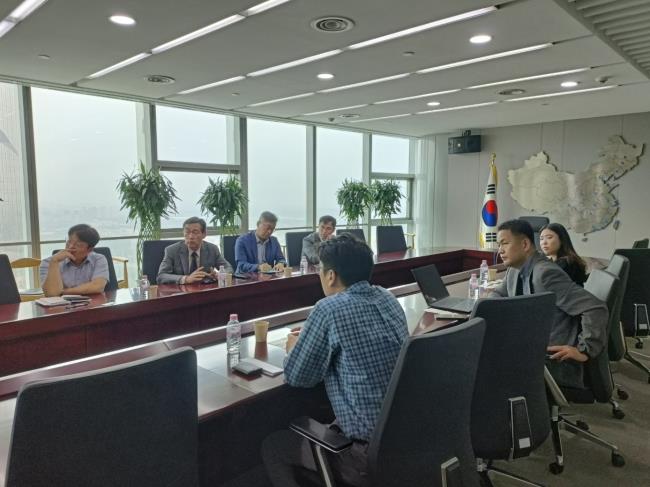Interest in open online education is growing. In Korea, K-MOOC, an open online education program, was launched in 2015. Unfortunately, the publicity of the Massive Open Online Course (MOOC) is insufficient, so there are still a lot of people who do not know or use it properly.
Most importantly, it is necessary to actively utilize the MOOC system for the purpose of establishing the MOOC system and lifelong education in the era that everybody will live more than 100 years old. Accordingly, it is important to establish a basic infrastructure.
Various cyber universities currently exist, but it will still not be difficult to use them to create a MOOC base. And by actively promoting it, all citizens should be encouraged to use it as a part of lifelong education.
For this, intensive investment and active publicity for MOOC are required. The meaning and role of MOOC as a means for hobbies and leisure activities of current or potential college students or those who want to receive the latest education after graduating from college, middle-aged and older people preparing for a new life in the second act of life .
If the driving force for Korea's economic development in the 1960s and 1970s was offline education enthusiasm and intensive investment, the driving force for growth in the digital age is the introduction of an online public education system and its acceptance and development in a Korean form.
To this end, the existing education-related laws must be boldly innovated to fit the digital education environment. Furthermore, it is urgent above all else to build a social support infrastructure that creates an educational environment that can have international competitiveness by developing the MOOC system more flexibly and flexibly. In order for all of these to be successful, accurate awareness of the popularization and onlineization of education and interest and intensive investment at the government-wide level should be preceded.
Now, the existing education system cannot have competitiveness in the digital environment. The fact that education is limitedly conducted in offline classrooms does not fit the digitalization and globalization of education. This is because, if we focus only on lectures and discussions offline, we cannot even dream of 'global classrooms'. Online lectures have the advantage that all professors and students around the world can participate and conduct on-site training.
In that sense, MOOC has a lot of implications. Although interest in MOOCs has been high in Korea recently, the interest, support, and efforts at the pan-government level are still insufficient. MOOC promotion needs to be approached as a national task in which the public and private sectors are jointly centered around the existing cyber university. After that, it should be developed into a promising industry in the future.
A good example is the University of Minerva. The university does not have a campus, only dormitories. And this dormitory requires students to live in a different country every semester. The lecturers are made up of former professors from famous universities such as Harvard, etc. All lectures are conducted online, and it is not a one-way lecture, but an online seminar education in the form of a discussion in which professors and students actively participate. It is said that entering this school is more difficult than entering Harvard University.
As such, we also need to make efforts to converge the existing education system with both online and offline. The current business model of MOOC is in the direction of granting formal degrees in connection with offline degree programs after obtaining credits through MOOC. It will be necessary to properly converge MOOC and cyber university. It is also desirable to link online and offline courses with famous foreign universities. Even if the learner is not good at English, it will increase the learning effect by putting English or translated subtitles next to the screen.
In the process of online popularization of education, there may be opposition from the established elite. However, it is impossible to go against the trend of the times. For the success of MOOCs, government-wide support and the establishment of basic infrastructure are the most pressing issues.
To solve this problem, the forward-looking attitude and innovative thinking of the bureaucratized education supervisory authority are required. Above all, MOOC should be prioritized as a national task and work should be carried out. To do this, it is important to have an accurate understanding of the MOOC and set the right direction, and accordingly, intensive investment is required.
Under the digital environment such as MOOC, the existing offline university education will gradually lose its competitiveness. If you use MOOC, you can take the world's best curriculum within the range you need, and you will be able to receive live theoretical and practical education through free discussion with professors and other students and online field training. Through classes where students can have mutual discussions in English or international languages, they will provide opportunities to become global talents in the future.
The biggest advantage of MOOC is that it is almost free. In other words, economic democratization in the field of education will be realized. For the success of the MOOC, which has many advantages, it is necessary to boldly break away from the traditional notion of education and free from prejudice and misunderstanding.















.jpg)

 cusco, past, future & now by IP&ART(김승열 RICHARD SUNG YOUL KIM한송온라인컨설팅센터대표이사HSOLLC)
cusco, past, future & now by IP&ART(김승열 RICHARD SUNG YOUL KIM한송온라인컨설팅센터대표이사HSOLLC)
 open, collective intelligence & OSS by IP&ART(김승열 RICHARD SUNG YOUL KIM한송온라인컨설팅센터대표이사HSOLLC)
open, collective intelligence & OSS by IP&ART(김승열 RICHARD SUNG YOUL KIM한송온라인컨설팅센터대표이사HSOLLC)
 변호사와 AI
변호사와 AI
 AI Present and Future in the Legal Fields Under the RCEP
AI Present and Future in the Legal Fields Under the RCEP
